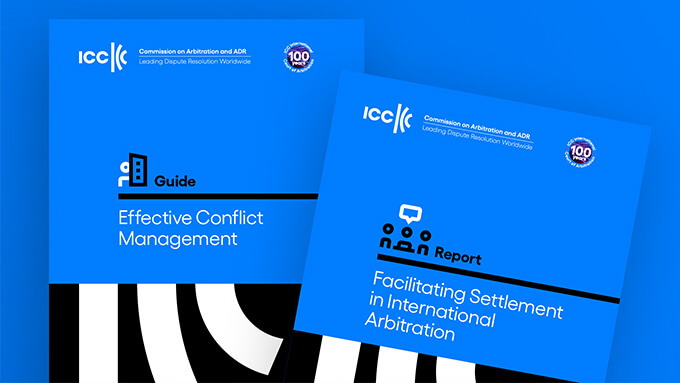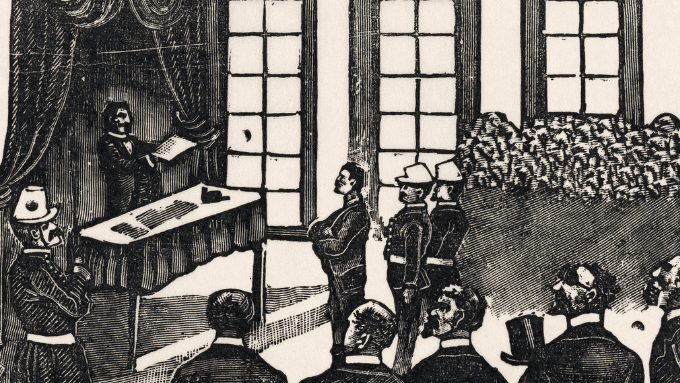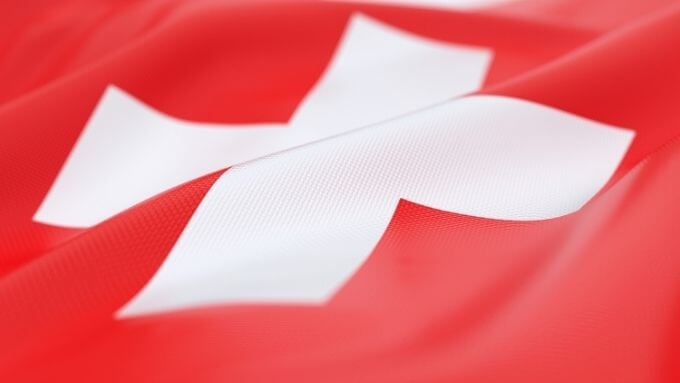Istanbul Arbitration Center
Arbitration Centers
Globalization, cross-border transactions and transnational disputes increase the need for a reliable dispute resolution mechanism, which inevitably results in emphasis on international arbitration. Despite the costs, corporations are inclined to prefer arbitration over litigation before courts, recognizing it as better suited to meet their needs[1].
Although ad hoc arbitration remains a valid and effective choice, agreements usually include dispute resolution clauses that refer disputes to arbitration under well known arbitration institutions. While the International Chamber of Commerce (“ICC”) remains the most preferred institution, followed by the World Intellectual Property Organization (“WIPO”) and the American Arbitration Association (“AAA”), other arbitration institutions, such as the London Court of International Arbitration (“LCIA”) and Singapore International Arbitration Center give rise to new arbitration centers[2].
Factors such as costs, distance and logistics, expertise in a field or competence in national laws favor choosing various arbitration institutions. For instance, the similarity of Turkish Law with Swiss Law is one of the reasons why Switzerland is chosen as the place of arbitration by Turkish parties, and the “Swiss Rules” are chosen as applicable rules of arbitration[3]. The diversification of choices result in an increase of arbitration centers, not just in Europe and America but also in Asia, such as Singapore and Hong Kong. States increasingly promote their institutions for international arbitration, stressing their geopolitical advantages and arbitration friendly legal infrastructure.
Istanbul as International Center of Finance and Arbitration
Istanbul is not only the financial center of Turkey, but also, due to its geopolitical advantages and developing economy, a prominent and increasingly dominant headquarters in the region for cross-border financial transactions. Unsurprisingly, the Turkish Higher Planning Council adopted a resolution, dated September 29, 2009, and numbered 2009/31[4], designating Istanbul as the center of international finance, and foreseeing the establishment of the Istanbul International Finance Center (“IFC”)[5]. One of the pillars of the IFC and the second priority specified in its Strategy and Action Plan, dated October 2009, is the establishment of an independent and autonomous institutional arbitration center that is capable of competing internationally with respect to cost, speed and effectiveness[6].
Draft Law on Istanbul Arbitration Center
In accordance with this objective of establishing an institutional arbitration center, the Council of Ministers submitted a Draft Law on the Istanbul Arbitration Center (“Draft Law”)[7] to the national parliament on March 25, 2013. The Draft Law was referred from the Justice Commission to the Turkish Grand National Assembly on July 15, 2014, and is currently in the assembly’s agenda. Even though an accurate projection cannot be made on the timing of the promulgation of the Draft Law, and despite the risk of predominance by other political agendas, the Istanbul Arbitration Center is expected to be established in 2015.
In preparing the Draft Law, the working group examined numerous arbitration institutions including the ICC, AAA and LCIA. The two institutions chosen as models by the working group were the German Institution of Arbitration, and the Arbitration Court of the Czech Chamber of Commerce and the Agricultural Chamber of the Czech Republic. The Draft Law regulates the establishment of the Istanbul Arbitration Center, defining its duties, bodies, structure and envisions two separate arbitration courts for national and international disputes.
Arbitration Rules
The Draft Law does not provide for the arbitration rules, or the resolution of disputes referred to the Istanbul Arbitration Center; but addresses its organization. Pursuant to the Draft Law, the Istanbul Arbitration Center will have the duty to determine and establish the rules for, as well as promote arbitration and other alternative dispute resolution mechanisms.
The arbitration rules to be set by the Istanbul Arbitration Center will not be the first set of institutional arbitration rules in Turkey. The Union of Chambers and Commodity Exchanges in Turkey (“TOBB”), the Istanbul Chamber of Commerce (“ITO”) and the Izmir Chamber of Commerce have institutional arbitration rules. Notwithstanding, neither institution acts as an international arbitration center. The ITO rules require that at least one of the parties to a dispute is its member; rendering their scope mostly local. Moreover, these rules require that the matter to be resolved through arbitration be a commercial dispute. The number of arbitrators available in these institutions is very limited. Therefore the establishment of the Istanbul Arbitration Center and the preparation of its rules are essential.
Organization
The Draft Law foresees that the İstanbul Arbitration Center is established as a legal entity subject to civil law provisions. The center shall be composed of a general assembly, a board of directors, auditor, advisory board, national and international arbitration courts and a secretary general.
Emphasis should be made on the composition of certain bodies. Pursuant to the Draft Law, the Istanbul Arbitration Center shall have a general assembly which, among others, shall have the duty of forming the board of directors, approving the applicable arbitration rules, and the budget.
The general assembly shall consist of 23 members. Among these members, six shall be elected by the TOBB (which already has an institutional arbitration); three shall be elected by the Council of Higher Education; and the Ministry of Justice, the Capital Markets Board, the Istanbul Stock Exchange, the Banking Regulation and Supervision Agency shall each elect one member. This composition could easily raise concern about the independence of the Istanbul Arbitration Center, as many members of the general assembly are indirectly elected by the state. Moreover, only five members are required to have a legal background. Especially bearing in mind the nature of the duties of the general assembly, such as approval of the rules, we believe that more lawyers should be engaged.
Material Milestones for an Arbitration Center
The Draft Law constitutes merely the starting point for Istanbul becoming an internationally recognized center of arbitration. The rules to be adopted also are among the first steps. In fact, the rules of arbitration adopted by institutions mostly referred to in practice are not drastically different from each other. Undoubtedly, the rules to be adopted by the Istanbul Arbitration Center need to be suitable for international arbitration, and should not disregard the internationally accepted and frequently applied rules. However the choice of an arbitration institution by the parties for dispute resolution in their transactions is less determined by the institution’s rules, and more by matters which specifically affect the arbitral proceedings, such as the choice of arbitrators or enforceability of awards.
Thus, the autonomous character of an institution, the appointment of impartial and independent arbitrators, as well as the arbitration-friendliness of the applicable legislation and the general practice of courts play an important role.
The International Arbitration Code No. 4686 mainly adopts the UNCITRAL Model Law on arbitration. Additionally, Civil Procedure Code No. 6100, which entered into force as recent as October 1, 2011, also reflects the model law. Turkey is a party to the New York Convention on the Recognition and Enforcement of Foreign Arbitral Awards of 1958, in addition to other international treaties on arbitration. In addition to the legislative infrastructure, the recent Turkish jurisprudence mostly favors arbitration. Notwithstanding, reasons for overturning enforcement requests of arbitration awards, such as the time limit for rendering awards and public order, and the lack of coherence between courts and chambers of the Court of Cassation determining the practice regarding arbitration, still continue to overshadow the acceptance of Turkey as an arbitration friendly country. The unification of jurisprudence favoring arbitration is therefore necessary in order for the Istanbul Arbitration Center to be an internationally recognized arbitration institution.
As emphasized in the legislative justification of the Draft Law, the independence and autonomy of Istanbul Arbitration Center will play a central role in it being recognized as an international center for arbitration. As briefly explained above, the current composition of bodies may need to be reconsidered in order to avoid doubts of impartiality which foreign parties may have when deciding whether or not to refer their disputes to be resolved before the Istanbul Arbitration Center. Additionally, expertise in arbitration, constant promotion, consistency and continuity will be necessary and essential.
Conclusion
International arbitration is increasingly chosen as the dispute resolution mechanism in cross-border transactions. The ICC, AAA, LCIA and other arbitration institutions are preferred by international actors. Cost, reliability, independence, choice of arbitrators, expertise, location, arbitration-friendliness and many other factors play an important role in parties referring their disputes to be resolved under the rules of these arbitration institutions.
As a material part of the vision of the IFC project aiming to render Istanbul a regional and global finance center, the foundation of an international arbitration center is planned in Istanbul. Accordingly, the Draft Law recently included in the agenda of the Turkish Grand National Assembly foresees the establishment and structure of the Istanbul Arbitration Center. Once the Draft Law is promulgated, the Istanbul Arbitration Center that will be established will have the duty, among others, to determine the arbitration rules and promote arbitration.
In order for Istanbul to become a center for international finance and arbitration, factors such as arbitration-friendliness, expertise, autonomy and independence, will be essential. The composition of the bodies of the Istanbul Arbitration Center will have a material effect on its independence, which needs to be carefully assessed prior to the promulgation of the Draft Law.
In short, while the promulgation of the Draft Law and the establishment of the Istanbul Arbitration Center will be important milestones, they will only be the starting points for Istanbul to be internationally recognized as a center for arbitration on par with Zurich, Geneva, Paris, London, New York, Singapore and others.
[1] See International Arbitration Survey of PriceWaterhouseCoopers, Queen Mary University School of International Arbitration for the year 2013 http://www.pwc.com/gx/en/arbitration-dispute-resolution/assets/pwc-international-arbitration-study.pdf (accessed on July 30, 2014).
[2] For the breakdown of choice of selected arbitration institutions see the WIPO Center International Survey on Dispute Resolution in Technology Transactions for the year 2012 on http://www.wipo.int/export/sites/www/amc/en/docs/surveyresults.pdf (accessed on July 30, 2014).
[3] See, Prof. Dr. Ziya Akıncı, “Neden İstanbul Tahkim Merkezi?”, http://journal.yasar.edu.tr/wp-content/uploads/2014/01/3-Ziya-AKINCI.pdf (accessed on July 30, 2014).
[4] Published in the Official Gazette dated October 2, 2009, and no. 27364.
[5] See Newsletter article “Will Istanbul Become A Center For International Arbitration?” dated November 2009 http://www.erdem-erdem.com/en/articles/will-istanbul-become-a-center-for-international-arbitration/ (accessed on July 30, 2014).
[6] See http://www.ifm.gov.tr/Shared%20Documents/Strategy%20and%20Action%20Plan%20for%20IFC%20Istanbul.pdf (accessed on July 30, 2014).
[7] See http://www2.tbmm.gov.tr/d24/1/1-0758.pdf (accessed on July 30, 2014).
All rights of this article are reserved. This article may not be used, reproduced, copied, published, distributed, or otherwise disseminated without quotation or Erdem & Erdem Law Firm's written consent. Any content created without citing the resource or Erdem & Erdem Law Firm’s written consent is regularly tracked, and legal action will be taken in case of violation.
Other Contents

Emergency arbitration addresses the need for interim protection before the arbitral tribunal is constituted in institutional arbitrations. Arbitral institutions establish short timeframes to ensure parties can obtain interim relief quickly. For example, the International Chamber of Commerce (“ICC”) requires that the emergency...

International arbitration remains the preferred mechanism for resolving complex cross-border disputes. Yet despite its advantages—neutrality, enforceability, flexibility—arbitration is frequently criticized for being too slow, too expensive, and too procedurally heavy. Often, parties proceed through hearings and...

For arbitral awards rendered in international commercial arbitration to produce legal effects in foreign jurisdictions, they must be subjected to proceedings for “recognition” and “enforcement.” This process is governed by the New York Convention as well as by the provisions of the Law on Private International Law...

Arbitrability, the determination of whether a specific subject matter can be resolved through arbitration, constitutes a fundamental aspect of arbitration within the scope of international commercial dispute resolution. This concept draws a delicate balance between party autonomy—a fundamental principle of arbitration...

The recognition, enforcement, and annulment of foreign court and arbitral awards in Türkiye are processes in which public policy emerges as one of the most critical criteria for review, both in theory and in practice. The Court of Cassation decisions determine the direction of case law regarding the scope and...

As is well known, the action for annulment of objection is a special type of lawsuit regulated under Article 67 of the Turkish Execution and Bankruptcy Law No. 2004 (“EBL”). The primary objective of this action is to nullify a debtor’s objection to execution proceedings. Despite its procedural function of facilitating...

On 16 December 2024, the London Court of International Arbitration (“LCIA”) released its third batch of challenge decisions covering the period from 22 July 2017 to 31 December 2022. The LCIA has also issued a detailed commentary that identifies key legal themes and analytical trends, offering practitioners...

The International Chamber of Commerce (“ICC”) has published its report on the dispute resolution statistics for 2023 (“Report”) , shedding light on the evolving landscape of international arbitration...

Syndicated loans undoubtedly hold a significant position among global financing models. In 2023 alone, 3,655 syndicated loans were provided to companies in the US, with their total value reaching USD 2.4 trillion...

Preliminary attachment refers to the temporary seizure of a debtor's assets to secure a creditor's claim. While it serves as a vital instrument for safeguarding the rights of creditors, it is subject to specific and stringent conditions under Turkish law to prevent any potential misuse...

One of the most important reasons for parties to choose arbitration is the opportunity to freely choose their arbitrators. This freedom granted to the parties also distinguishes arbitration from proceedings before state courts, where the parties are deprived of the power to determine the judges who will conduct the...

The 6th Civil Chamber of the Court of Cassation ruled on October 12, 2022, that national courts have jurisdiction over objections to provisional measures in international arbitration disputes...

The declaration of intent to resolve disputes through arbitration is the fundamental constituent element of an arbitration agreement. To speak of a valid arbitration agreement, the parties' intention to arbitrate must emerge in a way that leaves no room for dispute...

In the wake of the evolving dynamics of commercial transactions, the Netherlands Arbitration Institute Foundation (NAI) announced new arbitration rules . 2024 NAI Arbitration Rules are in force as of 1 March 2024 and will be applicable on proceedings filed on or after this date...

With the global shift to online activities, domain names play a crucial role in identifying businesses. It is more common than ever for a domain name to be registered that is confusingly similar to a trademark or service mark...

The ICC Commission on Arbitration and ADR (“Commission”) published a new guide and report with the aim to increase awareness on alternative dispute resolution (“ADR”) mechanisms to prevent disputes and strengthen the relationship between all stakeholders.The Guide on Effective Conflict Management...

Mergers and Acquisitions (“M&A”) are restructuring of companies or assets through various types of financial transactions, such as mergers, acquisitions, purchase of assets, or management acquisitions. This Newsletter article covers M&A disputes being solved before arbitral tribunals.

In the context of arbitration practice, the principle of revision au fond means that the courts can not examine the merits of a dispute when reviewing an arbitral award. This principle is most commonly encountered in set aside and enforcement proceedings. An arbitral award is evidence of the parties’ willingness...

Under Turkish law, parties may agree on the settlement of disputes that have arisen or may arise, regarding the rights that they can freely dispose of, by arbitration. However, disputes which are not subject to the will of parties, such as the disputes relating to in rem rights of immovables, bankruptcy law...

On 4 September 2020, a research project “Does a Right to a Physical Hearing Exist in International Arbitration?” was launched by an International Council for Commercial Arbitration (“ICCA”) taskforce. Due to the Covid-19 pandemic, many arbitration hearings were held online. Many institutional rules...

Dubai International Arbitration Center amended its Arbitration Rules on 25 February 2022. The 2022 Arbitration Rules were published on 2 March 2022 and came into effect on 21 March 2022. The Rules will be applied to arbitrations that are filed after 21 March 2022; unless parties agree otherwise...

In the aftermath of the Achmea decision, controversies on intra-EU arbitrations continue. Most recently, the Paris Court of Appeal has annulled two arbitral awards rendered against Poland. Meanwhile, the Higher Regional Court of Berlin has refused to declare that an Irish investor’s ICSID claim...


Under Turkish law, the legal remedy that can be applied against arbitral awards is an annulment action. Law on International Arbitration No. 4686 (“IAL”) finds its application area in arbitration proceedings where Turkey is the place of arbitration...

It is well known that following a decision of the Court of Justice of the European Union, problems arose related to arbitration of intra-EU disputes, and particularly arbitration under the Energy Charter Treaty...

Arbitration in corporate law contains controversial elements in many respects, especially the issue of arbitrability. Even in legal systems where these disputes are considered to be arbitrable, uncertainties remain on whether an arbitration clause can be included in the articles of...





Arbitration has benifited from a great increase in the use of technology which has directly effected the conduct of proceedings. More particularly, with digitalization, the way that we conduct arbitration proceedings has been changed to reflect the current needs of parties, with an aim of increasing time...
































































